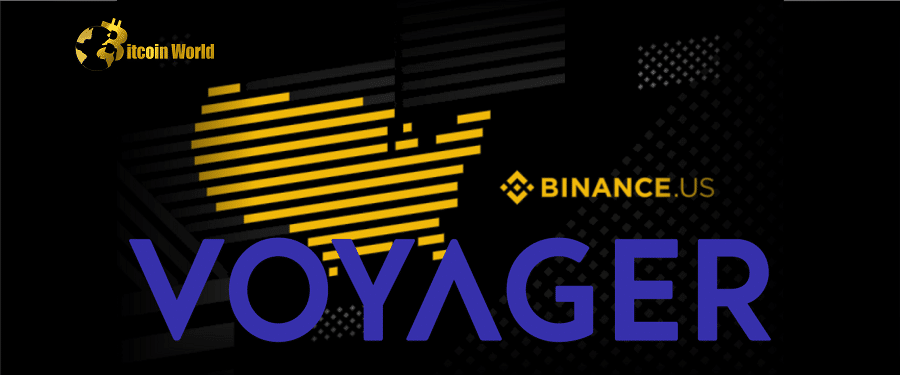The deal has received preliminary approval from the bankruptcy judge, but it still needs to be approved by creditors and finalized by the court.
Voyager Digital, a bankrupt cryptocurrency lender, has received preliminary court approval for its proposal to sell its assets to Binance.US for $1.02 billion.
The approval comes amid a national security investigation into Binance.US, which Voyager is attempting to expedite.
According to a Jan. 11 Reuters report, Judge Michael Wiles of the United States Bankruptcy Court for the Southern District of New York allowed Voyager to enter into the asset purchase agreement and seek creditor approval on Jan. 10, but the sale will not become final until a future court hearing.
It comes as Voyager wants to speed up the review of its proposal to sell assets to Binance.US, which could lead to the deal being blocked or delayed.
During the court hearing, Voyager’s attorney, Joshua Sussberg, stated that Voyager has been responding to questions from the Committee on Foreign Investment in the United States (CFIUS) and will address any concerns that CFIUS may have that would cause it to oppose the transaction.
“We’re working with Binance and their attorneys to not only deal with that inquiry, but also to voluntarily submit an application to move this process forward,” Sussberg said.
The Committee on Foreign Investment in the United States (CFIUS) is an inter-agency body that reviews foreign investments or acquisitions of U.S. companies for national security concerns.
If CFIUS determines that national security concerns about the transaction are justified, it can block or unwind the transaction, or it can instruct the parties involved to change the deal to address the concerns.
On December 30, CFIUS filed a court notice indicating that “one or more transactions contemplated” by Voyager could be subject to a review, potentially resulting in blocks or delays.
The US Attorney’s Office is reportedly investigating Binance’s global entity over money laundering allegations, but its CEO, Changpeng “CZ” Zhao, has stated that Binance.US is a “fully independent entity” headquartered in California.
Zhao is a Chinese-born Canadian citizen, and CFIUS is authorized to review any transactions that could result in foreign control of a US business or provide a foreign person with an equity stake.
The Voyager Official Committee of Unsecured Creditors — a group representing creditors with no security interests in Voyager — backed the deal in its current form, noting that it would result in higher recoveries for creditors than if Voyager liquidated its holdings itself, which would happen if CFIUS blocked the transaction.
Previously, on Jan. 8, the bankrupt lender rebutted objections to the acquisition proposal from Alameda Research, the Securities and Exchange Commission, four U.S. states, and the U.S. trustee.
Voyager claimed that the transaction is in its creditors’ best interests, and that the objections “fail to put forward any factual or legal support” for its arguments.
After a $1.4 billion deal with FTX.US fell through due to the crypto exchange’s bankruptcy, Voyager announced on December 19 that it had agreed to Binance.bid US’s to acquire its assets for $1.022 billion.














